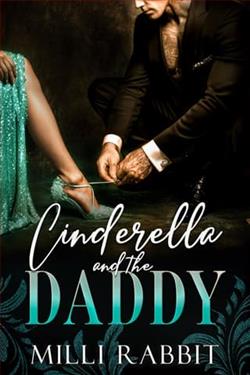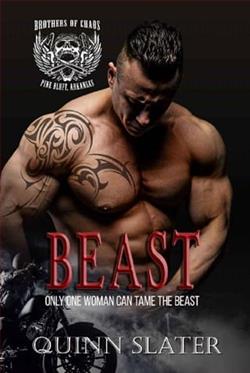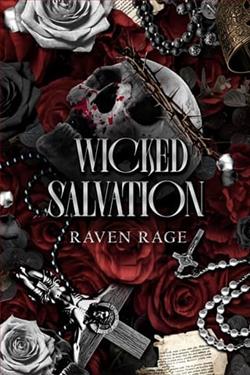Page 4 of Change of Heart
Alice followed the road out of the town and into thick woodland. The road climbed for several hundred yards until she emerged from the trees and found herself directly in front of the castle. Seen close up, it was even more impressive and imposing, and she could well imagine that in its heyday this place would have commanded considerable respect and no small amount of fear.
She left the car by the side of the road in a muddy layby, making a mental note that before the castle could be opened to the public, they would have to provide considerable customer parking. It was noticeably colder here than it had been at Bologna airport, and she was glad of her thick woolly jumper. The good news was that the air was far drier than back in England and her knee didn’t seem to have suffered after a day mostly spent sitting down. She deliberately left her stick in the car as she wanted to convince the people here that she was agile enough to do the job, but it was a considerable relief that she found walking unexpectedly easy. Hopefully this was a good omen.
She could see a light dusting of snow still on the tops of the distant hills, even though it was almost the end of April now. Entrance to the castle was across a massive wooden drawbridge over what had no doubt once been a moat. This was now little more than a deep ditch, overgrown with scrub, brambles and small trees. At the bottom of it she could also see an unpleasant assortment of rubbish. It looked as though the locals had been using the place as a dump for quite some time.
There was no sign of a doorbell or of anybody to ask, so she ignored the sign markedPROPRIETÀ PRIVATAand walked across the bridge and in through the arched entrance set at the base of one of the towers that punctuated the stone walls. A pair of massive wooden doors, studded with square headed nails, each the size of her fist, were opened against the walls of the gatehouse, and looking up, she was fascinated to see a rusty iron portcullis suspended high above her on equally rusty chains. This looked far from safe, so she made a point of passing through there as quickly as possible until she emerged into the open central courtyard of the castle. Here she saw a few signs of the twenty-first century.
Parked against the far end of the remarkably large open area were three cars: two nondescript small cars similar to the one she had rented, and a very muddy Land Rover. She was mildly surprised not to see something a bit more upmarket. She had assumed that anybody living in a castle would be in the high-income bracket. Of course, she told herself, this was probably why they had decided to open the castle to the public. Maybe they had fallen on hard times, but if they had, surely the logical thing to do would have been to sell what was without doubt a very valuable piece of real estate, or at least some of the surrounding land.
She was standing there, wondering where the main entrance was, when the sound of a voice attracted her attention.
‘This is private property. You’re not meant to be in here.’
The owner of the voice was a diminutive but feisty-looking, white-haired old lady, and she was peering suspiciously out of a first-floor window. Alice gave her a little wave.
‘Good afternoon, I have an appointment with Simonetta Varaldo. My name’s Alice Sterling and I’ve come from England.’
A less confrontational expression appeared on the elderly lady’s face, but she gave no reply, stepping back and closing the window, leaving Alice standing in the courtyard wondering what would happen next.
Less than a minute later a door in the wall, about twenty paces from where she was standing, opened with a creak and a young woman appeared. She gave Alice a friendly wave and beckoned to her.
‘Signora Sterling? I’m Simonetta. Do come in.’
As Alice walked across to the doorway, she checked the woman out. From the look of her, they were probably roughly the same age. Simonetta Varaldo had an attractive face and an enviable mass of glossy black hair that hung down past her shoulders. She was wearing jeans and a chunky grey V-neck pullover. Alice also checked out the doorway itself. Set in a sculpted stone archway, the tall double doors were clearly very old and had been carved with a most intricate design of what looked like a wildcat entwined with a snake. The doors were badly in need of a coat of varnish or some wax, but even in their current state this was a spectacular piece of artistry and Alice nodded to herself. If the rest of the castle was as ornate as this, it promised to be popular with visitors.
‘Hello, I’m Alice. It’s very kind of you to see me at such short notice.’
‘Thank you for coming so quickly. That’s very good of you.’ They shook hands and Simonetta led her into the castle.
Alice found herself in a huge, vaulted entrance hall with massive flagstones covering the floor. It was quite dark in here as the only light came in through narrow windows, one on either side of the doors and four others cut into the opposite wall, each barely wide enough for an archer to fire through. It was also icy cold after the pleasant early spring sunshine outside, and Alice could see why the other woman was wearing a thick pullover. She pulled her jumper tighter around her body and hoped the temperature would be higher on the upper floors.
Corridors led off to the left and right, and ahead of them was a stone staircase, several metres wide. Simonetta made her way up the stairs, and as they climbed, Alice made a point of trying to keep up with the other woman’s pace and was delighted to manage it without too much discomfort. The light grew stronger and stronger, so that by the time they reached the first floor, larger windows allowed welcome sunshine to illuminate and warm their surroundings. It still wasn’t hot up here by a long way, but it was a much more welcome temperature, particularly after months spent in the draughty corridors of the manor back in England.
Alice took a good look around. While the ground floor had been workmanlike and clearly designed to play a major defensive role, up here there was a distinctly different, more comfortable feel to the place. The floor was no longer rough stone, but covered with black and white marble tiles, each of them two or three feet across, giving a giant chessboard appearance to what was quite a large open landing.
The wall directly opposite was filled with family portraits, mostly of serious-looking men with extravagant facial hair. These had been hung two or three deep across the full width of the landing, and the overall impression was not so much of a portrait gallery as of a medieval advertising hoarding. Standing silhouetted against them was a lone figure and as Alice approached, he stepped forward but didn’t speak. The forbidding expression and the bushy white beard could have come from any of the portraits behind him.
Alice walked across to shake hands with him, feeling unusually apprehensive. She introduced herself and braced herself for a crushing handshake, but he was remarkably gentle. He was probably in his late sixties or early seventies and, even though his shoulders were now somewhat hunched forward, he was a tall man exuding a commanding presence. He still didn’t say a word, and then a few seconds of awkward silence followed before Simonetta reacted and introduced him.
‘This is my father, Barone Lodovico di Varaldo.’
‘I’m very pleased to meet you, sir.’ Alice wasn’t very sure how she should address a member of the Italian nobility, but it didn’t seem to matter to him. The baron was no longer looking at her, his eyes now staring out through the leaded glass into the valley below.
‘Our family has lived here for five centuries.’
His tone was full of gravitas, but as a conversation starter it didn’t immediately prompt a response. Luckily his daughter stepped in. Alice had a feeling that this was probably something Simonetta had to do on a regular basis for her father who looked as if he was, if not on another planet, at least in a different century.
‘History and tradition are very important toPapà. His whole life is the castle, the family, and the history of the family.’
Alice took her cue. ‘Family history is very important to me as well. Our family has lived and worked the same farm for six generations.’ The fact that the Sterling family had never owned the farm, but had always been tenant farmers, was something she decided to reveal at a later date. This answer appeared to do the trick, as the baron returned his eyes from the middle distance and surveyed Alice more closely.
‘Romano told me you came from good farming stock.’ This came as a surprise to Alice. Clearly, Lord Fitzgerald-Chagleigh had spoken about her at length to his friend in London who had then relayed the information to Count Romano, whoever he was. Alice made a mental note to make sure she bought something nice at the duty-free shop on the way back to say thank you to Ronald and Fenella. The baron nodded a few times to give weight to his words. ‘Without farmers, where would we be? The salt of the earth.’
‘Indeed.’
Alice wondered whether the Varaldo family cultivated any of the land around here or if they kept livestock. It would be interesting to see how large the estate was and how productive it was. She hadn’t seen any vineyards or olive groves up here in the hills, nor had she passed many sheep and cattle grazing in the fields. Considering she was now in the Parma ham production area it had come as a surprise to find that she hadn’t passed any pig farms either. Cows were essential for parmesan cheese, and pigs of course were the necessary raw material for the world-famous ham, so where were they hiding?
‘Shall we all go and sit down? Come on,Papà.’















